Bitfinity Weekly: What Happens in Vegas...
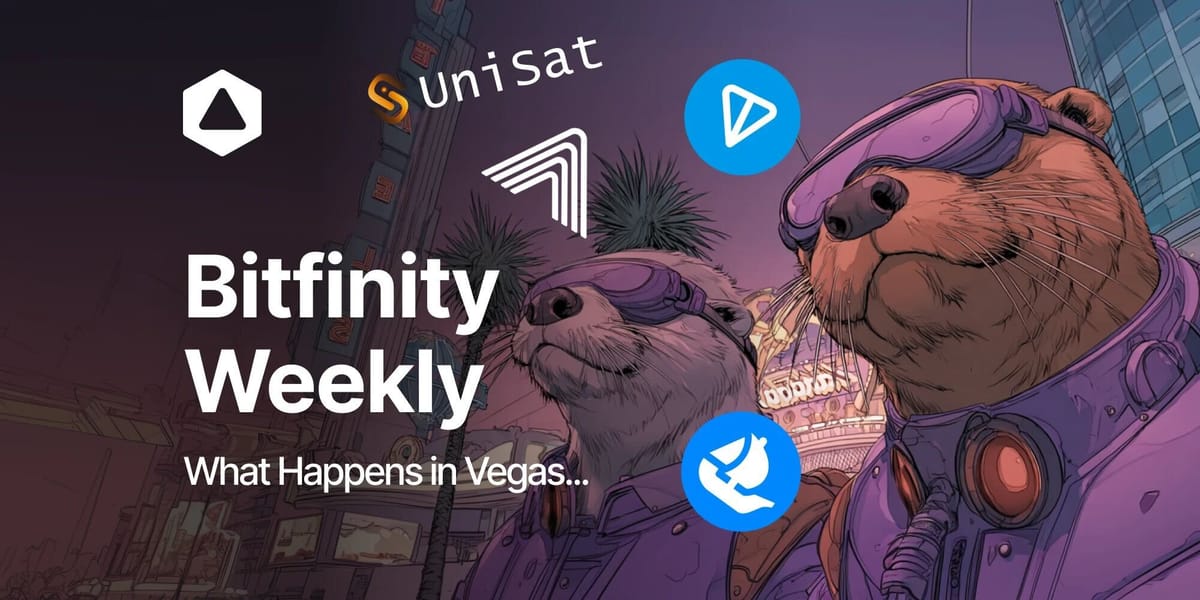
Welcome to Issue #160 of Bitfinity Weekly for our #BITFINIANS community. If this newsletter was forwarded to you, sign up here.
What's in Today's Email?
- Bitcoin Bytes
- Global Crypto News
- In the IC
- This Week in our Blog
- Tweet of the Week
- Meme Time
- A Matter of Opinion
Bitcoin Bytes
Viva Las Bitcoin: The largest Bitcoin conference in the world occurred this week in Las Vegas, with major name guests like Vice President JD Vance, Michael Saylor, Ross Ulbricht, President Trump's sons, Eric and Trump Jr., and more. Held at the Venetian casino and hotel, the three day event included hackathons, art galleries, and of course community meet ups.
Unifying Bitcoin: Wallet provider and DeFi platfom UniSat announced major integrations with the Alkanes metaprotocol this week. The UniSat wallet now supports Alkanes asset management, UniSat's UTXO Management Tool provides Alkanes UTXO visibility, providing increased unintentional tx spend protection, and UniScan explorer now has full Alkanes discoverability, making it possible to search for Alkanes tokens even during live mints.
Real World Bitcoin: Chintai and Arch Network are partnering to integrate institutional level real-world assets (RWAs) directly onto Bitcoin, using Chintai’s compliance-focused platform and the ArchVM to enable decentralized applications that offer BTC-native yield. The new platform, dubbed HoneyB, aims to enhance liquidity and distribution for tokenized assets.
Global Crypto News
Know Your Risks: Rap group Migos' Instagram was hacked this week, with the hackers using the account to leak Solana co-founder Raj Gokal and his wife's personal information, including ID photos. The doxx attack happened after Gokal refused to pay a 40 BTC extortion demand. The hackers also used the compromised account to promote a memecoin scam. The posts remained online for about 90 minutes before being removed, prompting criticism of Meta’s slow response and raising concerns about the safety of KYC data storage.
Grok on Demand: Toncoin (TON) surged nearly 12% following reports of Telegram's tentative $300 million deal with xAI. If the partnership is made, Elon Musk's AI company, xAI will integrate Grok onto Telegram's platform. TON, initially created by Telegram in 2018, was handed over to community developers two years later due to regulatory scrutiny, but the token's value remains closely tied to Telegram's developments.
The Garden Chain: The government of Bergen County, New Jersey, has partnered with blockchain software firm Balcony to tokenize $240 billion in property deeds on the Avalanche network, digitizing 370,000 records across 70 municipalities to create a tamper-proof, searchable ledger. The five-year initiative aims to cut deed processing times by 90%, reduce fraud, and recover lost revenue, as demonstrated by nearly $1 million identified in Orange, NJ. This is the largest U.S. tokenization project to date.
Smooth Sailing: OpenSea has fully rolled out OS2, enabling NFT and fungible token trading across 19 blockchains. A new on-chain rewards system called "Voyages" hints at a potential upcoming airdrop and token launch, though how the $SEA token will be distributed remains speculative for now. OpenSea executives have confirmed that "core utility" will be further developed before token TGE. The new OS2 platform replaces OpenSea's previous NFT-only platform.
In the IC
Valley Goals: The DFINITY Foundation will be at the Crypto Valley Conference, with founder Dominic Williams delivering a keynote speech, "The Future of Tech is Self-Writing." The event, organized by the Crypto Valley Association, is a leading blockchain event featuring over 40 global industry leaders discussing topics like AI-blockchain integration, real-world asset tokenization, and institutional-grade infrastructure.
Panda Party: ICPanda DAO announced the launch of ANDA AI, a Rust-based framework on the Internet Computer Protocol (ICP) blockchain, aiming to create next-generation AI agents with persistent memory, decentralized trust, and swarm intelligence, addressing limitations of traditional large language models like ephemeral memory and centralized architectures.
DFINITY Liquidity: LiquityProtocol v2 users can now access the Autonomous Rate Manager (ARM), which provides automated interest rate management for DeFi loans. ARM is built on ICP and leverages Chain Fusion, among other Internet Computer technology, for seamless crosschain activity.
This Week in our Blog
🚀 Bitcoin is leveling up! Discover how modular innovation is reshaping the original blockchain into a faster, more flexible powerhouse ⚙️🔥
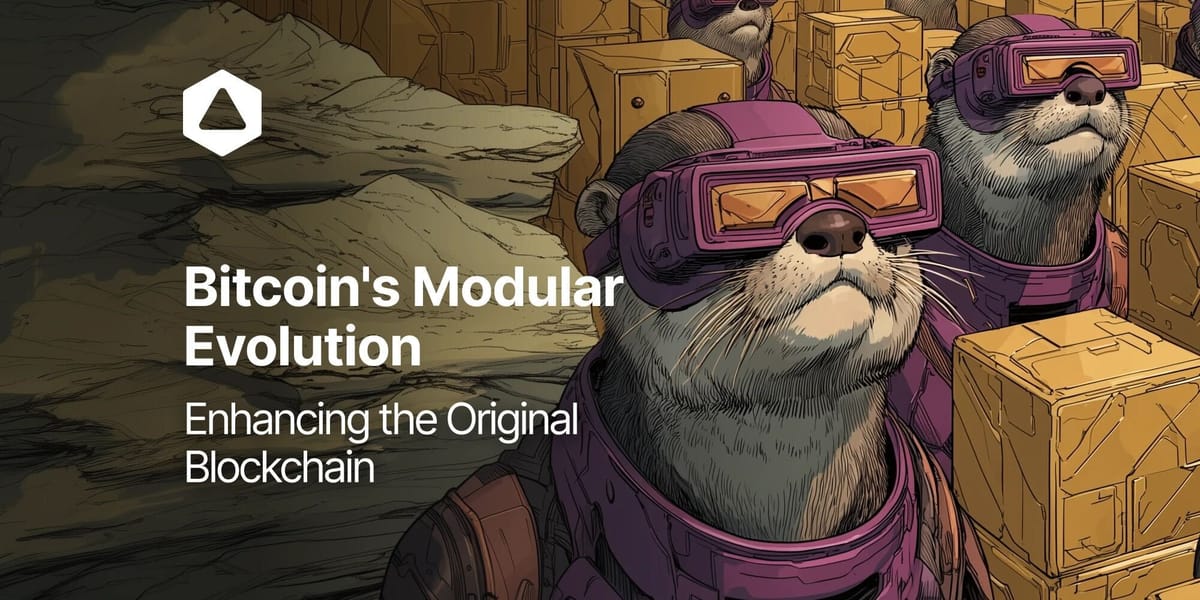
Tweet of the Week
Bitfinity was built to be a Bitcoin L2 with EVM compatibility.⚡️
— Bitfinity Network (@bitfinitynet) May 27, 2025
🗣️To achieve this, some useful EVM dev tools and libraries were utilized.
Here are a couple of them🫳
➛ Foundry
Foundry is a Rust-written EVM tool chain for comprehensive testing.
Bitfinity uses Foundry for… pic.twitter.com/cT6yTsfhwK
Meme Time
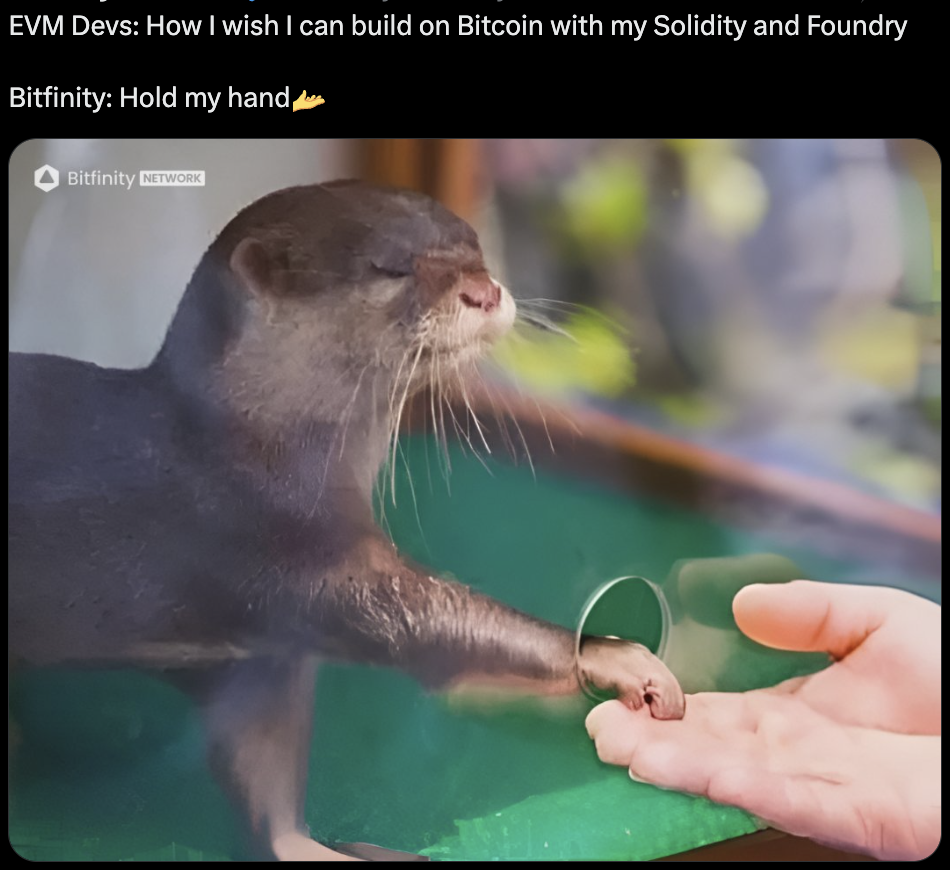
A Matter of Opinion
A recent court ruling has marked a significant moment for DeFi, legally affirming the principle of "code is law" in a case involving Avraham Eisenberg and Solana-based protocol Mango Markets.
Back in 2022, Eisenberg took advantage of a vulnerability in Mango Markets’ system, conducting self-trades to artificially boost the value of the platform’s MNGO token. Using the inflated token as collateral, he borrowed roughly $110 million in cryptocurrency from the protocol’s user pool, essentially manipulating the value of one token to extract value from different tokens. Prosecutors claimed Eisenberg had no intent to repay, charging him with commodities fraud, commodities manipulation, and wire fraud. In 2024, a jury found Eisenberg guilty of the fraud and manipulation charges.
However, his legal team sought a new trial, arguing the government failed to prove critical elements: that the MNGO token qualified as a commodity, that Eisenberg manipulated their perpetuals, that he defrauded Mango Markets, and that he used interstate wires to execute the alleged crimes. Last week, Judge Arun Subramanian sided with the defense, issuing an order that vacated the convictions for commodities fraud and manipulation and acquitted Eisenberg of wire fraud.
Central to this ruling was the nature of DeFi protocols. Judge Subramanian reasoned that Eisenberg could not have defrauded Mango Markets, a self-executing system, because he exploited a flaw in its design rather than breaching any explicit rules. The protocol lacked terms of service that banned his actions, and its “borrow” function did not mandate repayment, despite typical assumptions about borrowing. This interpretation aligns with the "code is law" idea, a belief in crypto circles that a protocol’s coded rules dictate what’s permissible, regardless of traditional expectations.
This verdict has naturally sparked a lot of discourse about the future of DeFi’s legal landscape. By absolving Eisenberg of criminal action, the ruling highlights gaps in how decentralized systems are designed and regulated. While this outcome can be seen as a win for DeFi advocates, however, it raises alarming questions about how courts will address similar cases moving forward, with Eisenberg's intent to exploit a vulnerability being a key factor in the discussion.

Connect with Bitfinity Network
Bitfinity Wallet | Bitfinity Network | Twitter | Telegram | Discord | Github

*Important Disclaimer: The information provided on this website is for general informational purposes only and should not be considered financial or investment advice. While we strive for accuracy, Bitfinity makes no representations or warranties regarding the completeness, accuracy, or reliability of the content and is not responsible for any errors or omissions, or for any outcomes resulting from the use of this information. The content may include opinions and forward-looking statements that involve risks and uncertainties, and any reliance on this information is at your own risk.
External links are provided for convenience, and we recommend verifying information before taking any action. Bitfinity is not liable for any direct or indirect losses or damages arising from the use of this information.



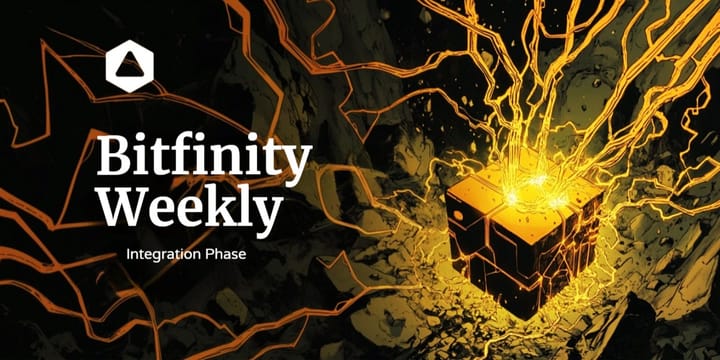
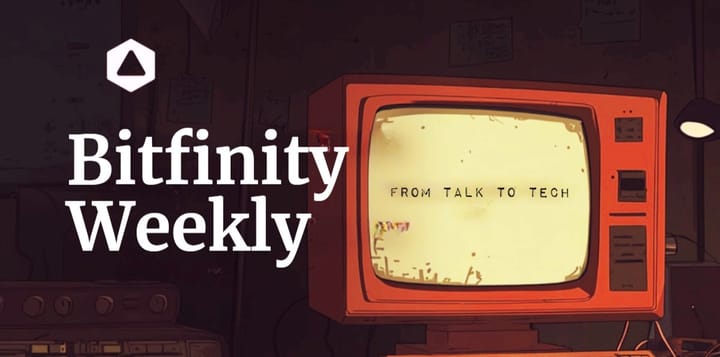
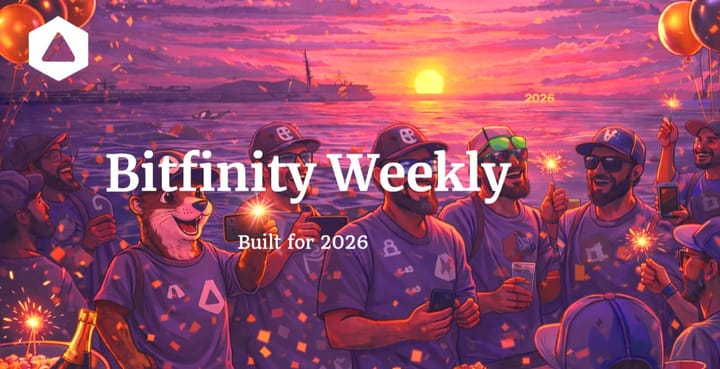
Comments ()